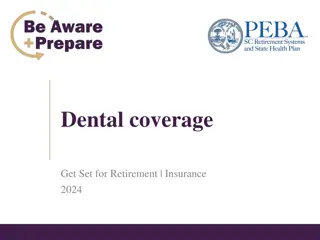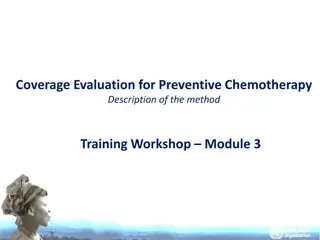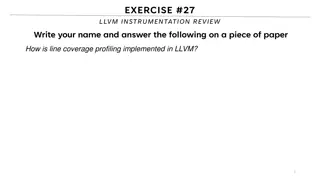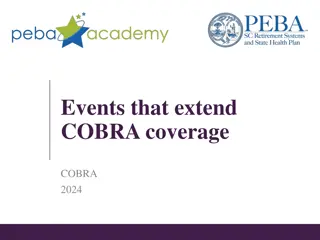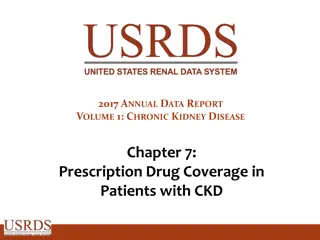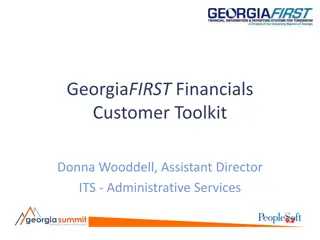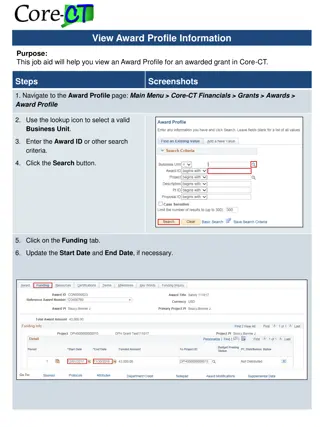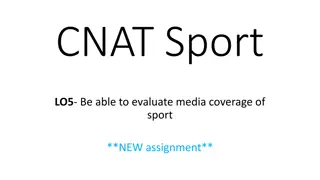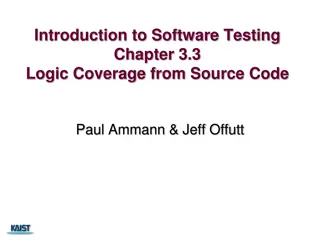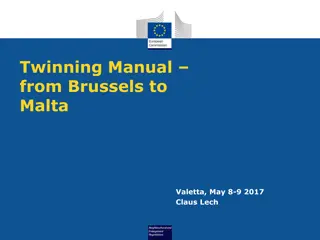Financials Coverage Group Overview
Hedge funds and private equity are diverse investment options. Hedge funds have various strategies with high returns, while private equity involves investing in companies for future gains. The current state of private equity shows challenges due to high asset prices and competition. Deals and exits in 2013 saw a surge in buyout and venture capital exits.
Download Presentation

Please find below an Image/Link to download the presentation.
The content on the website is provided AS IS for your information and personal use only. It may not be sold, licensed, or shared on other websites without obtaining consent from the author.If you encounter any issues during the download, it is possible that the publisher has removed the file from their server.
You are allowed to download the files provided on this website for personal or commercial use, subject to the condition that they are used lawfully. All files are the property of their respective owners.
The content on the website is provided AS IS for your information and personal use only. It may not be sold, licensed, or shared on other websites without obtaining consent from the author.
E N D
Presentation Transcript
Description: swlogo E2-E3 Functional Skills English, Essential Skills English & ESOL Tricky Words and Words with Silent Letters September 2024. Kindly contributed Niamh Mulhern, Bryson Pathways, NI. For curriculum links and related resources, refer to the download page for this resource on skillsworkshop: https://www.skillsworkshop.org/resources/tricky_words_and_silent_letters For full use of hyperlinks and other features, this presentation should be run in full screen mode. Functional Skills English: Writing content descriptors: E2.16: Spell correctly words designated for Entry Level 2 (see *Appendix) E3.17: Spell correctly words designated for Entry Level 3 (see *Appendix) Source: Functional skills subject content: English. DFE 2018. https://www.gov.uk/government/publications/functional-skills-subject-content-english Essential Skills standards & Curriculum for Literacy & Numeracy in Northern Ireland Several aspects of Writing - spelling at all Entry Level. Source: Essential Skills standards & Curriculum for Literacy & Numeracy in Northern Ireland (2019) UK Adult ESOL Curriculum Links ESOL Ww/E2.1b use knowledge of sound-symbol relationships and phonological patterns to help work out correct spellings, as appropriate for the needs of the learner ESOL Ww/E2.1c develop strategies to aid spelling ESOL Ww/E3.1a apply knowledge of spelling to a wide range of common & special interest words ESOL Ww/E3.1b apply knowledge of strategies to aid with spelling Source: Adult ESOL core curriculum (DfES, 2001) *Lists many silent letter words (e.g. write (E1), half(E2), doubt (E3)) and the following guidance: Entry 2 (p28): spell correctly: common words with letters corresponding to sounds that are often not pronounced (e.g., February, library, often, every, everything, interest, ordinary) Entry 3 (p31): spell common words with letters representing sounds that are often not pronounced (e.g., desperate, separate, history, category, natural, business, favourite, government, environment).
KNOWING ABOUT TRICKY WORDS AND WORDS WITH SILENT LETTERS: + Improves spelling accuracy + Enhances pronunciation skills + Boosts confidence in writing and speaking
SILENT LETTERS Definition: + Silent letters are letters that appear in a word but are not pronounced. + More than 60% of English words have silent letters
WHY HAVE SILENT LETTERS? + Silent letters appear in words for many reasons, such as historical changes and words being borrowed from other languages. + Silent letters can help distinguish between words that sound similar (homophones) + Silent letters can sometimes help to show long vowels or hard consonants + Silent letters can connect root words to prefixes and suffixes + Silent letters can give clues as to where the stress should be in a word
COMMON SILENT LETTERS Silent K Silent W Silent B Typically, silent when it precedes an n at the beginning of a word. Examples: knife, knee, know Usually silent when it precedes an r at the beginning of a word. Examples: write, wrist, wrong Often silent when it follows an m at the end of a word. Examples: comb, thumb, lamb Silent G Silent H Silent L Often silent when it precedes an n . Examples: gnome, sign, design Can be silent when it follows certain letters or appears at the beginning of some words. Examples: hour, honest, ghost Often silent when it follows an a , o , or u . Examples: calf, half, salmon
MORE COMMON SILENT LETTERS Silent N Silent P Typically, silent when it follows an m at the end of a word. Examples: hymn, autumn, column Often silent when it precedes an s or n . Examples: psychology, pneumonia, receipt Silent T Silent U Can be silent in certain words. Examples: listen, castle, ballet Often silent when it follows a g and precedes a vowel. Examples: guess, guitar, guard
TRICKY WORDS UNDERSTANDING CHALLENGING WORDS
COMMON TRICKY WORDS Accommodate: Double c and double m . Subtle: Island: Psychology: The p is silent. The b is silent. The s is silent. Necessary: One c and two "s"s. Definitely: Often misspelled as definately . Separate: Often misspelled as seperate . Embarrass: Double r and double s .
TIPS FOR MASTERING TRICKY WORDS Mnemonics: Create memory aids (e.g., Necessary has one collar and two sleeves ). Break Down: Divide words into smaller parts (e.g., def-in- itely ). Practice: Regularly write and review tricky words.
Consistency: Regular practice improves retention. IMPORTANCE OF PRACTICE Application: Use words in sentences to reinforce learning. Review: Frequently review and test yourself on tricky words.
QUIZ . Can you select the correct spelling?
Which is the correct spelling? + Recieve + Receive + Recive
Which is the correct spelling? + Recieve + Receive + Recive
Which is the correct spelling? + knee + nee + nkee
Which is the correct spelling? + knee + nee + nkee
Which is the correct spelling? +tommorrow +tomorow +tomorrow
Which is the correct spelling? +tommorrow +tomorow +tomorrow
Which is the correct spelling? +nife +knife +knif
Which is the correct spelling? +nife +knife +knif
Which is the correct spelling? +climb +clim +clime
Which is the correct spelling? +climb +clim +clime
Which is the correct spelling? +gnom +nome +gnome
Which is the correct spelling? +gnom +nome +gnome













